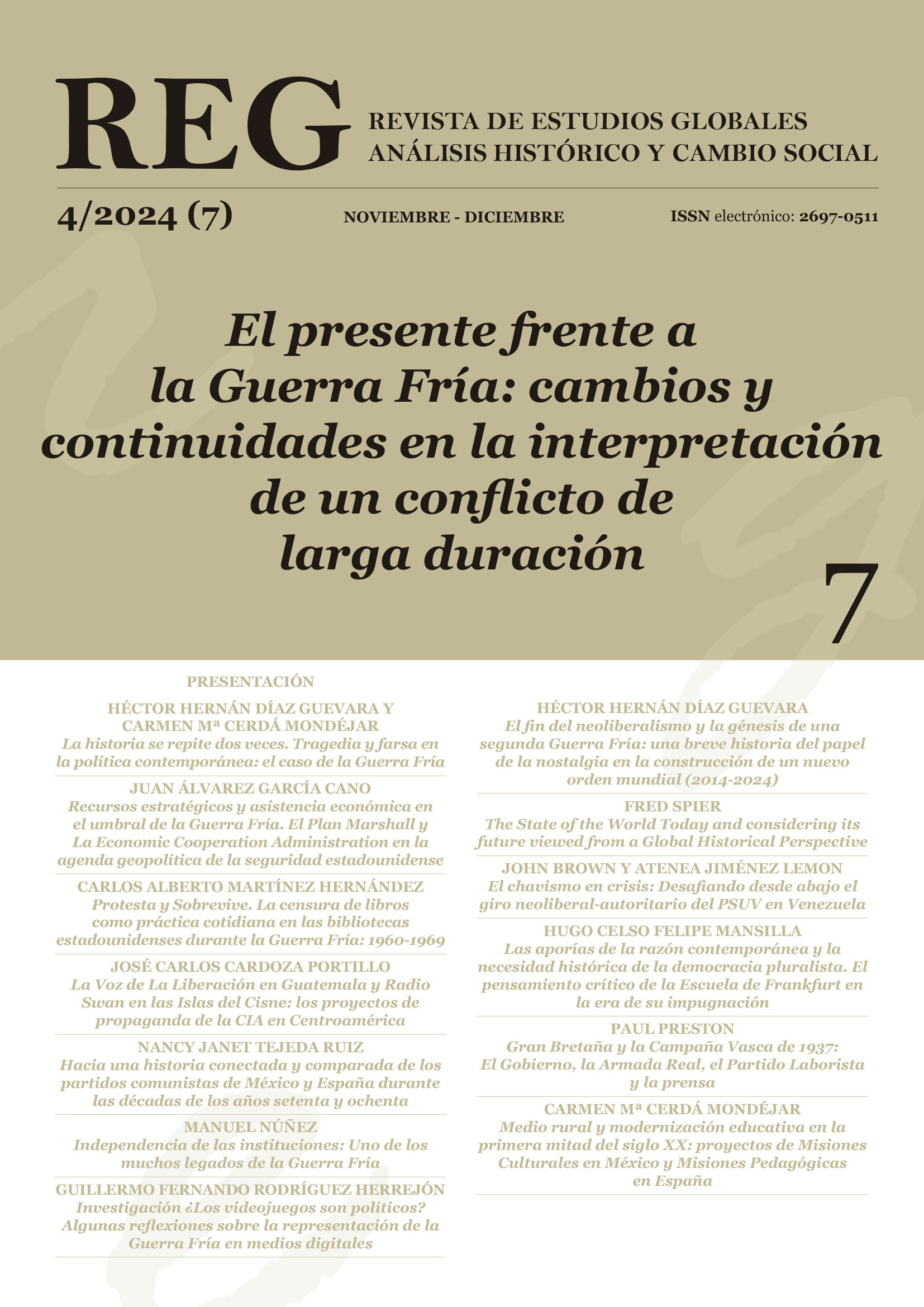Britain and the Basque Campaign of 1937: The Government, the Royal Navy, the Labour Party and the Press
Abstract
The policy of the British Conservative government towards the Spanish
Civil War reflected the general policy of appeasement of Fascist Italy and Nazi Germany.
It was influenced by a belief that the legitimate Spanish Republican Government
was the puppet of extreme left Socialists and Communists. Accordingly, the
British Cabinet adopted a policy of benevolent neutrality towards the military insurgents,
with the covert aim of avoiding any direct or indirect help to the Popular
Front Government. The official British line on the Spanish crisis was one of non-intervention despite
awareness of the scale of German and Italian aid to the military rebels. The contradictions
and deceit behind non-intervention were finally exposed by the humiliations
suffered by the British government during the war in the Basque Country in
the spring and early summer of 1937. Franco’s attempts to prevent the delivery of
sea-borne food supplies to a starving Bilbao challenged the Government’s responsibility
to protect British merchant shipping. At first, London accepted the rebel contention
that they had effectively blockaded Bilbao and that Royal Navy protection of
merchant shipping constituted intervention on the side of the Republic. On the basis
of information supplied by the Times correspondent, George Steer, a campaign was
mounted in parliament and the press which forced the government into a humiliating
volte-face.
Downloads
Metrics
-
Abstract174
-
pdf (Español (España))68
Copyright (c) 2025 Revista de Estudios Globales. Análisis Histórico y Cambio Social

This work is licensed under a Creative Commons Attribution-NonCommercial-NoDerivatives 4.0 International License.










